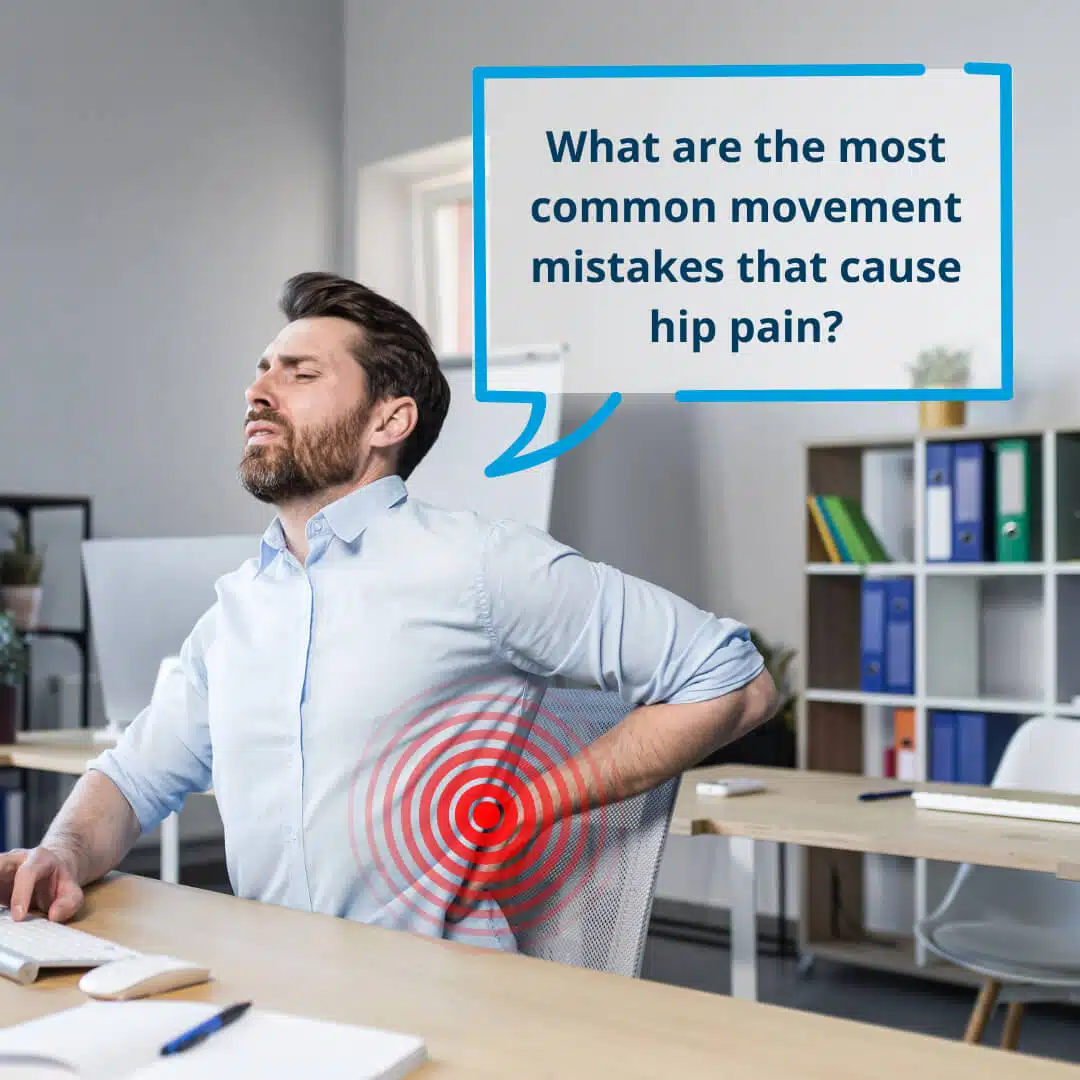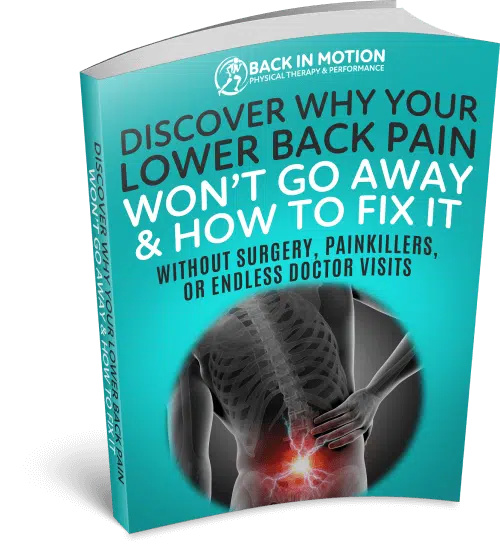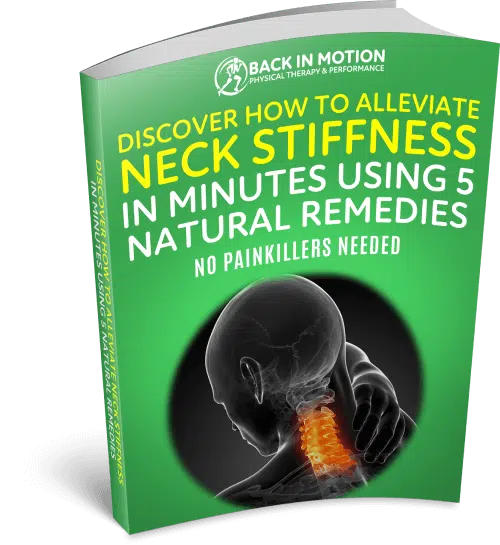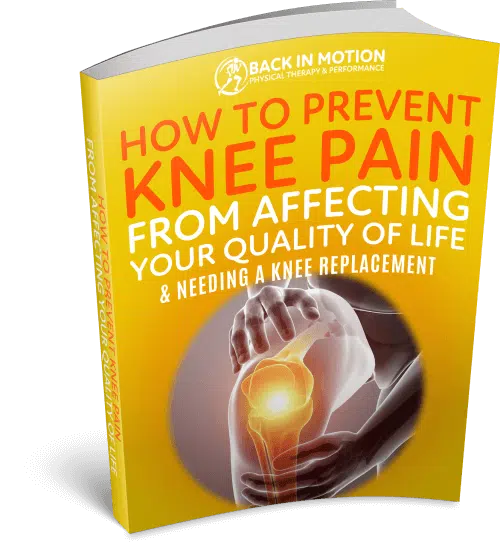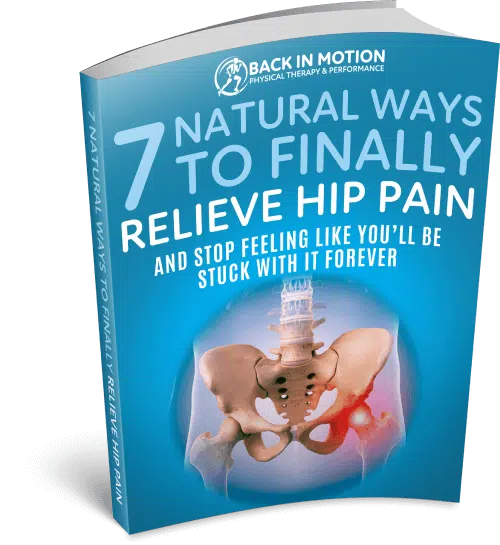10+ Key Questions to Ask About Hip Pain, Flexibility & Mobility (Before It Gets Worse!)
Hip pain, stiffness, and mobility issues can sneak up on you, making daily activities—like walking, exercising, or even sitting—uncomfortable. Many people search for quick fixes, but are they asking the right questions?
If you’ve been struggling with hip pain, tightness, or reduced mobility, it’s time to dive deeper and ask the questions that truly matter. These are the questions that can help you find the real cause of your discomfort and lead you to the best solutions.
Let’s explore the 10+ key questions you should be asking about hip pain, flexibility, and mobility—before it gets worse!
1. What are the most common movement mistakes that cause hip pain?
Most people don’t realize that hip pain isn’t always caused by an obvious injury. Poor movement patterns—like sitting too much, improper squat form, or walking with an imbalanced gait—can place unnecessary stress on your hips. Additionally, individuals with hypermobility may experience excessive femoral hyperextension due to anterior joint laxity and weak hip flexors. Another common issue is knee valgus collapse, where the knee dives inward, creating stress on the hip joint.
Ask yourself: Do I move correctly during daily activities and workouts?
2. How do weak or tight muscles contribute to hip pain?
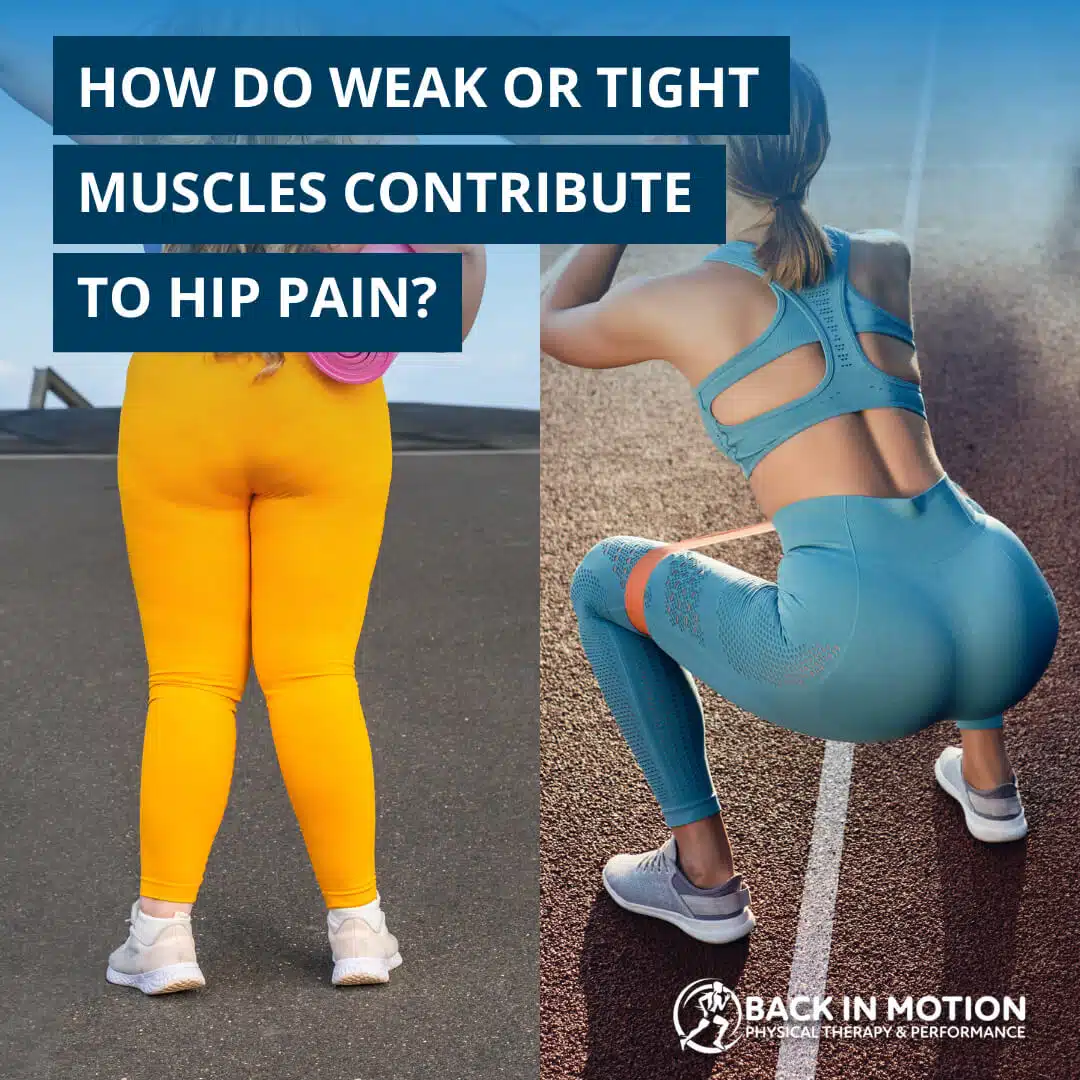
Muscle imbalances are a major cause of hip pain. Weakness in the gluteal muscles often leads to knee pain or posterior hip pain. Weak hip flexors, on the other hand, can cause excessive pain in the front of the hip (anteriorly). These weaknesses disrupt proper movement mechanics and create compensations that result in discomfort or injury.
Ask yourself: Am I only stretching my hips, or am I also strengthening them?
3. What are the early warning signs of hip issues that I shouldn’t ignore?
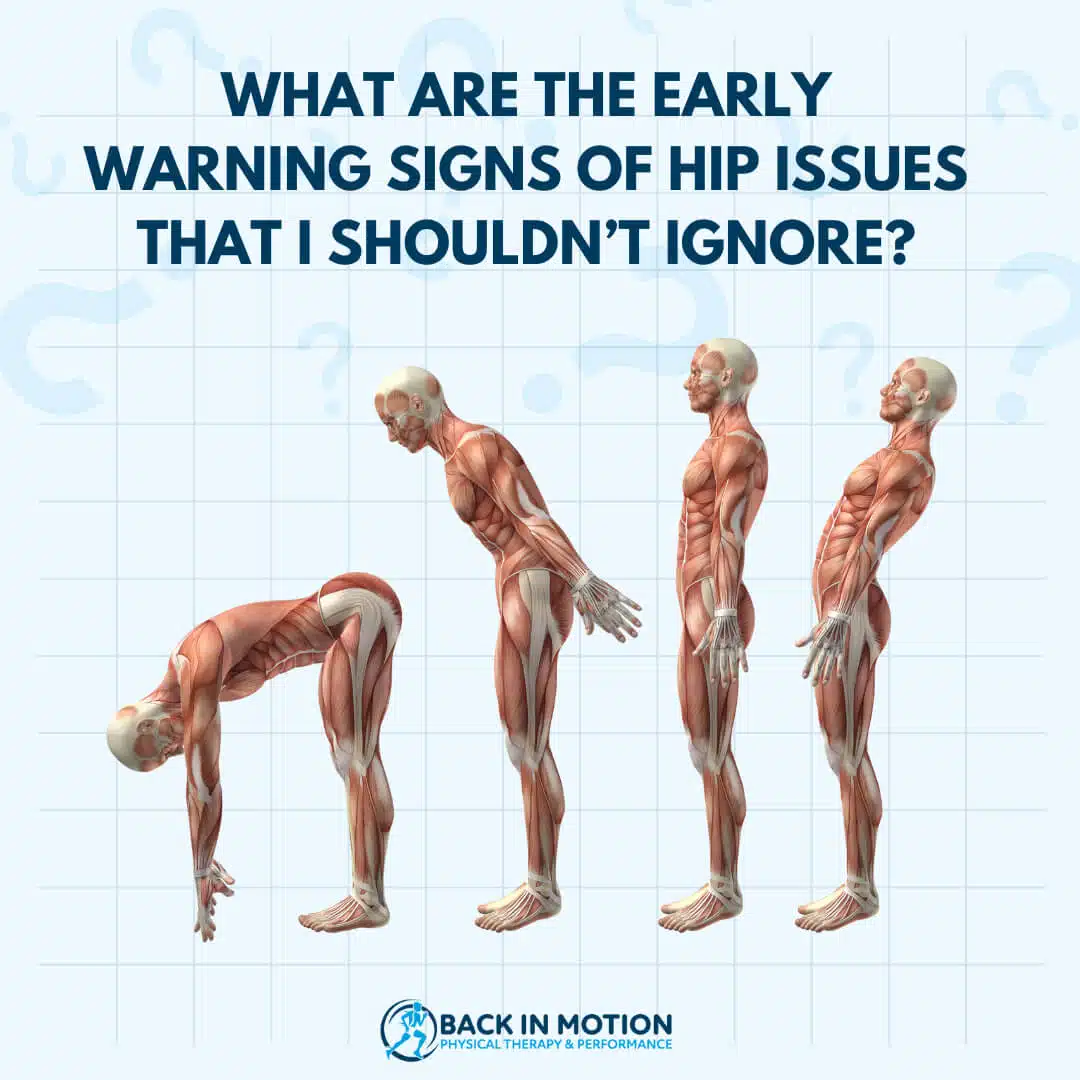
Hip discomfort may start as occasional tightness, clicking, or mild pain, but these can be early warning signs of a bigger issue. If left unaddressed, tight hips can lead to back pain, knee issues, and even mobility loss. While some individuals experience pain due to hypermobility and laxity, others present with the opposite clinical pattern—a tight anterior hip. Though this may not directly cause hip pain, it can contribute to lower back pain or knee discomfort due to restricted movement.
Ask yourself: Have I noticed any subtle hip discomfort that keeps coming back?
4. How does hip mobility affect my lower back, knees, and overall posture?
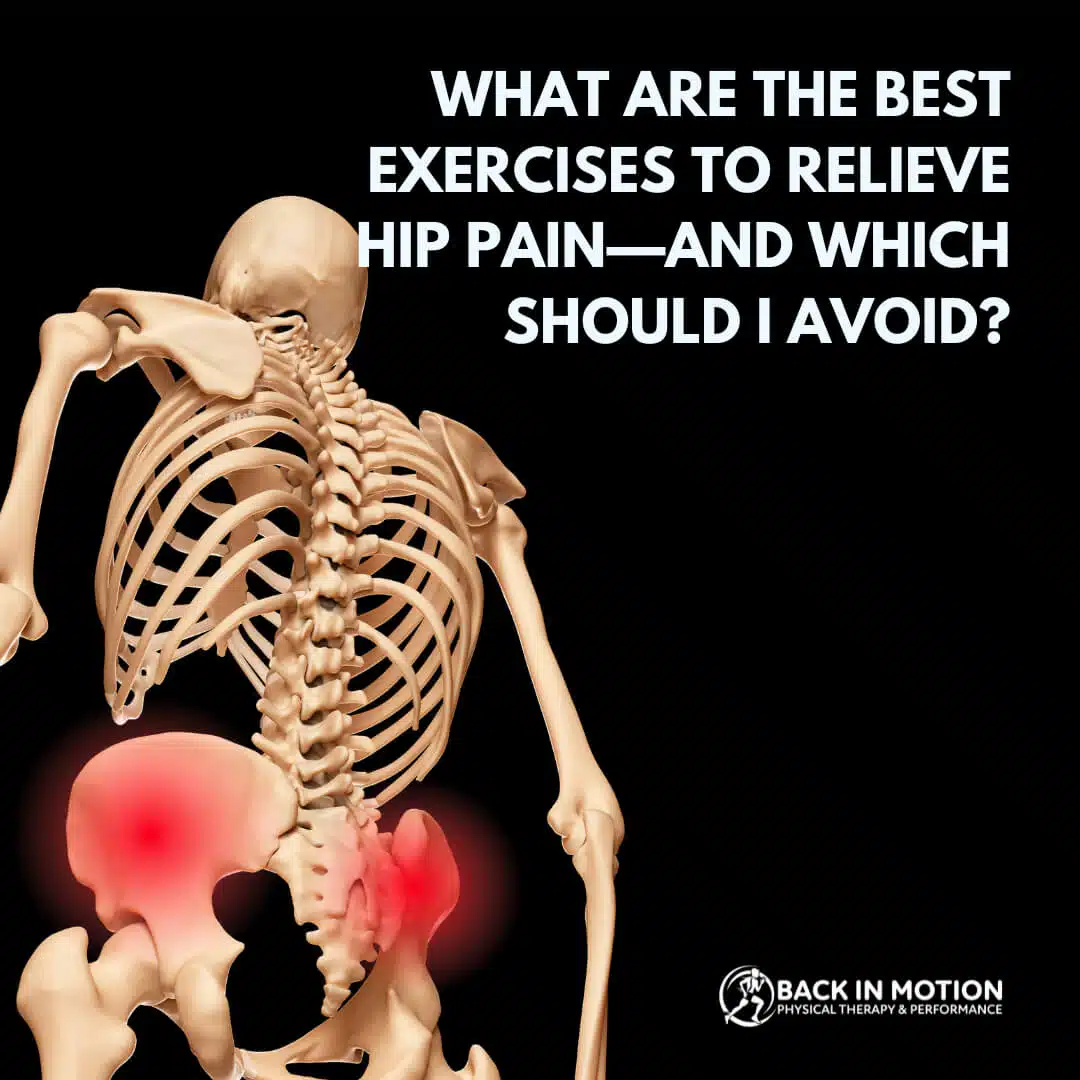
Your hips are the center of movement, and when they aren’t moving properly, other joints compensate. This often leads to lower back pain, knee pain, or poor posture.
Ask yourself: Am I feeling discomfort in areas beyond my hips, like my back or knees?
5. What are the best exercises to relieve hip pain—and which should I avoid?
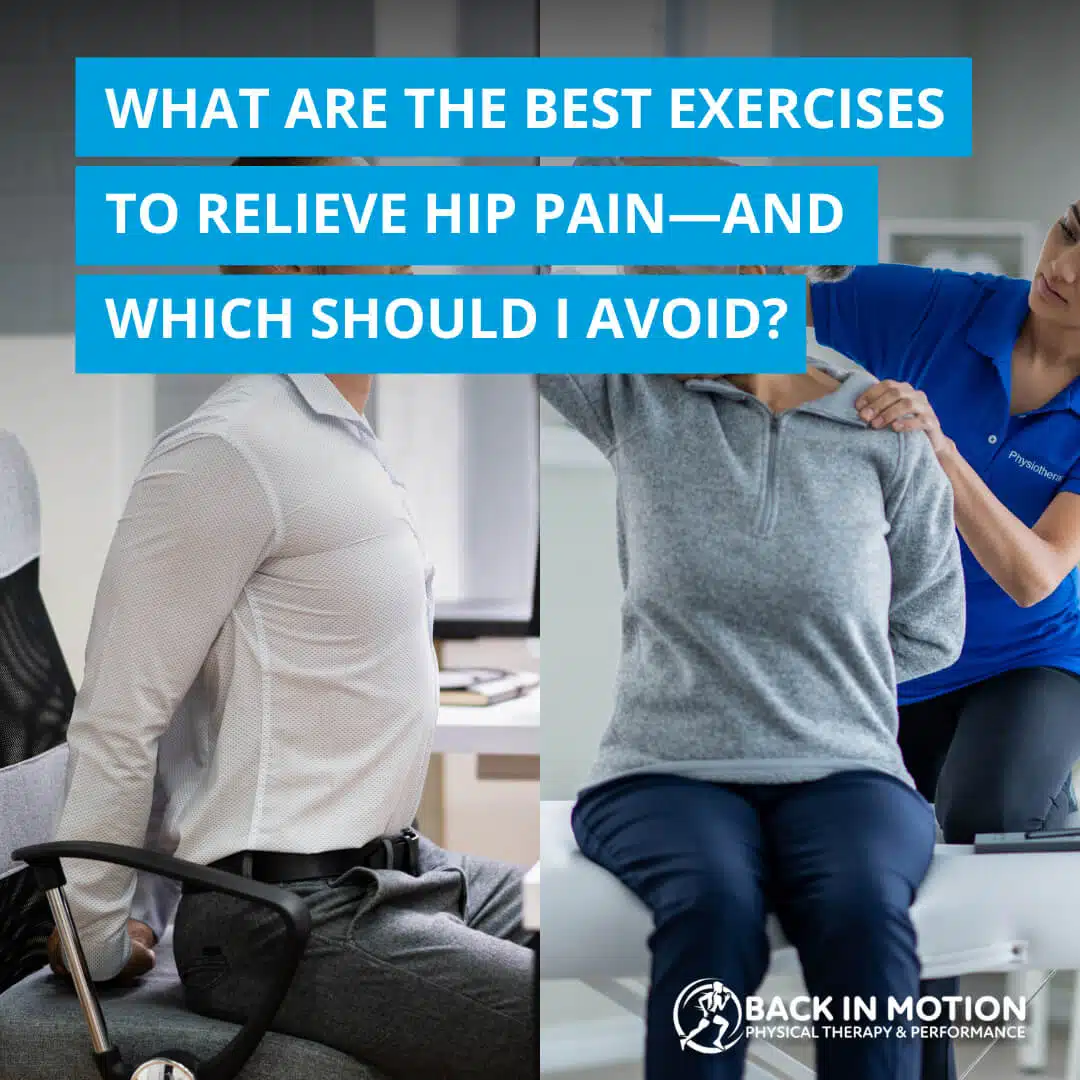
There are no universally “best” exercises for hip pain. What works therapeutically for one person may not be beneficial for another. Proper movement correction and strengthening need to be specific to the individual, rather than based on guesswork. An assessment by a professional can help determine the most effective exercises tailored to your needs.
Ask yourself: Am I doing the right exercises, or could I be making my pain worse?
6. Can hip pain go away on its own, or do I need professional treatment?
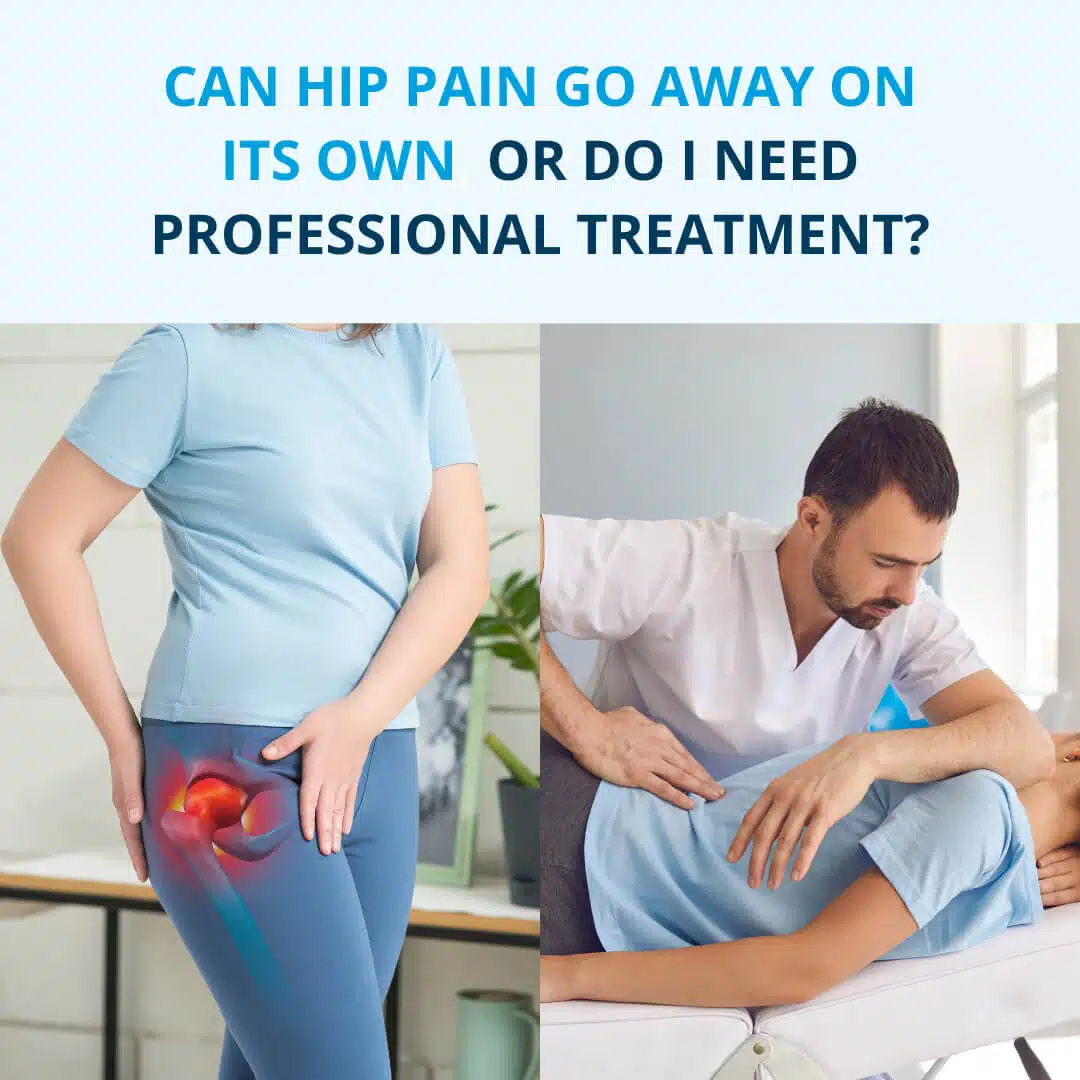
Hip pain rarely disappears on its own if the root cause isn’t addressed. Seeking physical therapy or mobility training can prevent chronic pain and long-term damage.
Ask yourself: Have I been ignoring my hip pain, hoping it will go away?
7. How does sitting all day impact hip health, and what can I do about it?
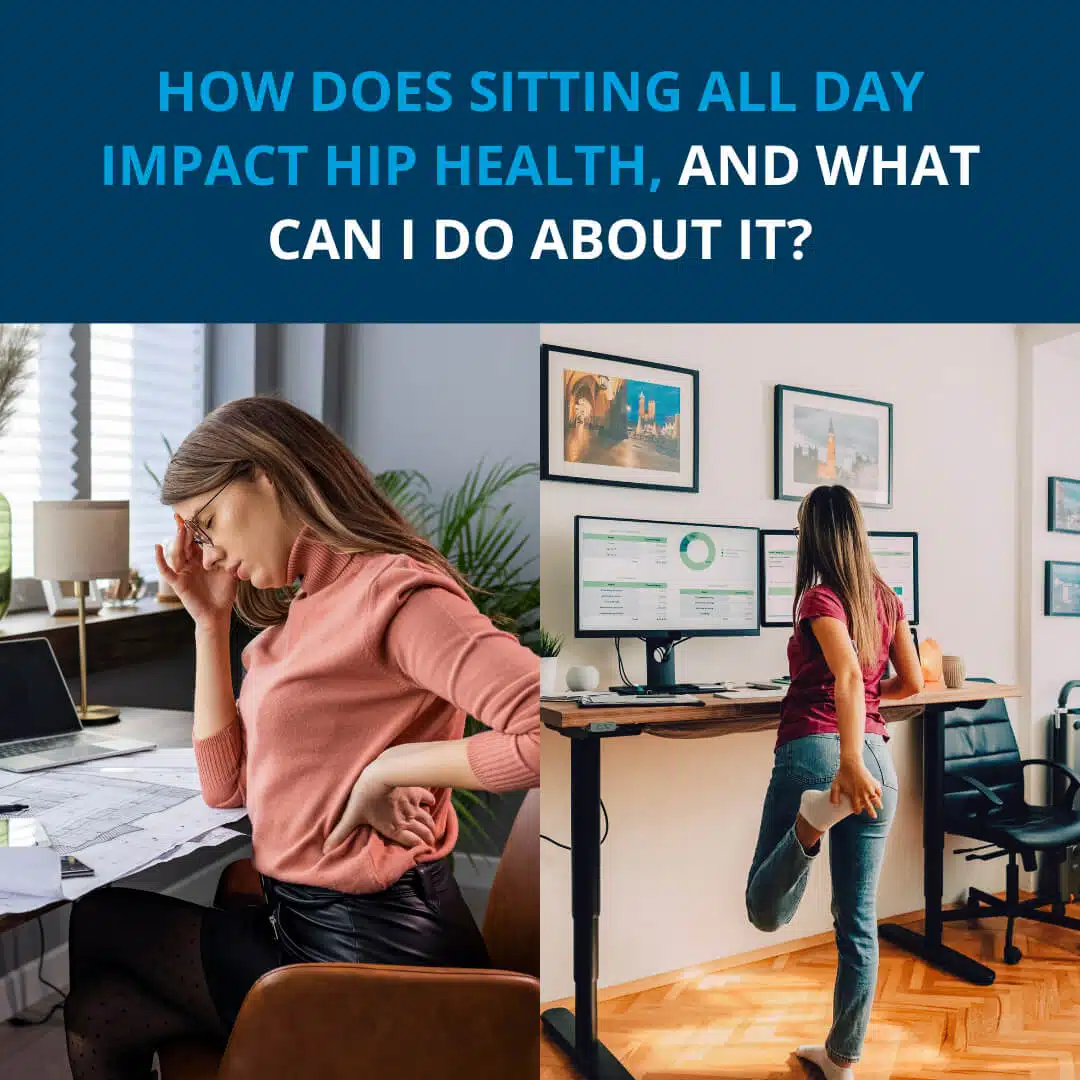
Sitting for extended periods tightens the hip flexors and weakens the glutes, leading to discomfort and reduced mobility.
Solution: Stand up every 30-60 minutes, incorporate hip mobility exercises, and avoid prolonged sitting when possible.
Ask yourself: Am I spending too much time sitting without movement breaks?
8. What’s the difference between hip mobility and hip flexibility—and why does it matter?
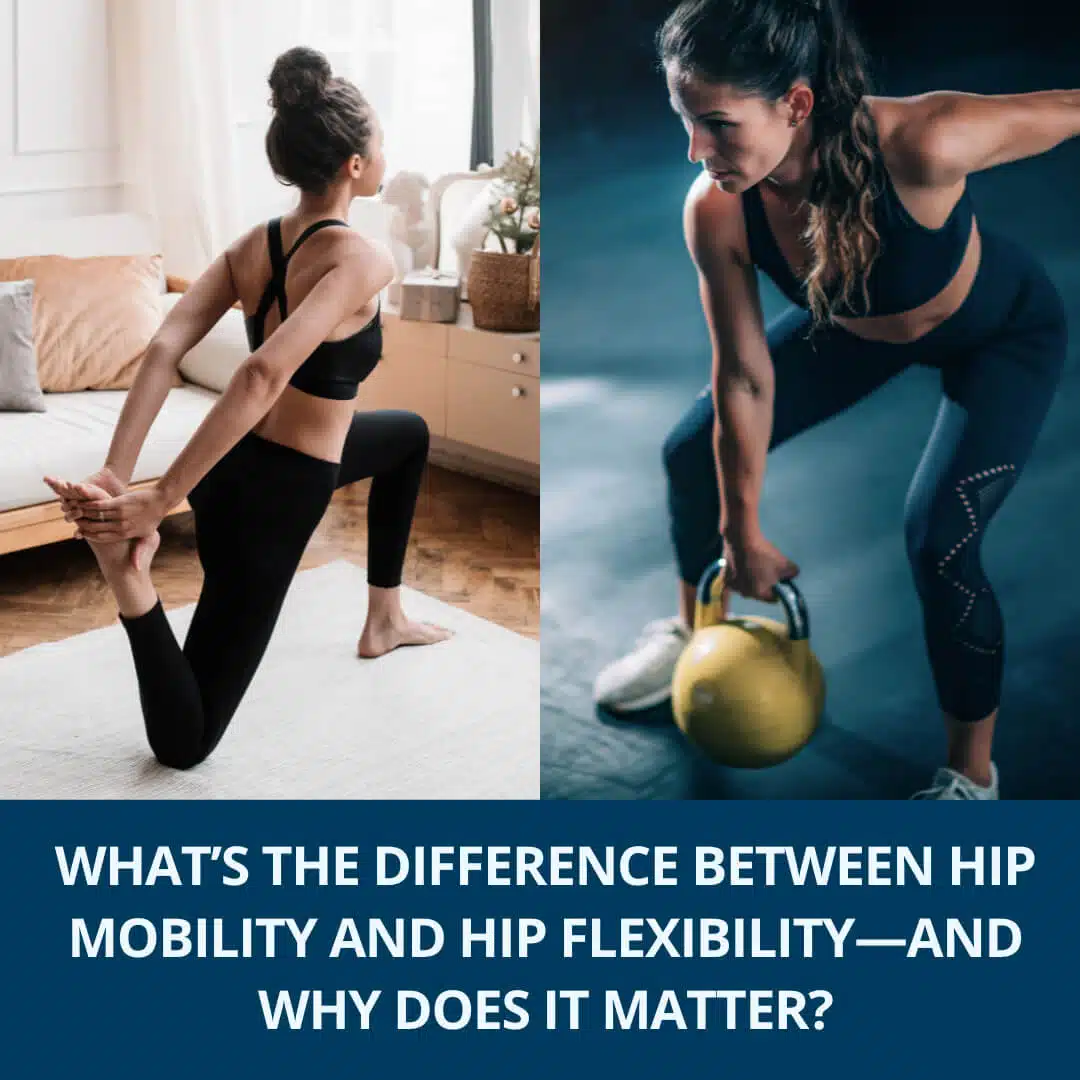
Many people confuse mobility (active movement) with flexibility (passive stretching). While stretching is helpful, true hip health requires mobility exercises that allow the joints to move through their full range of motion.
Ask yourself: Am I prioritizing both mobility and flexibility, or only stretching?
9. Why do my hips pop or click when I move? Is that a bad sign?
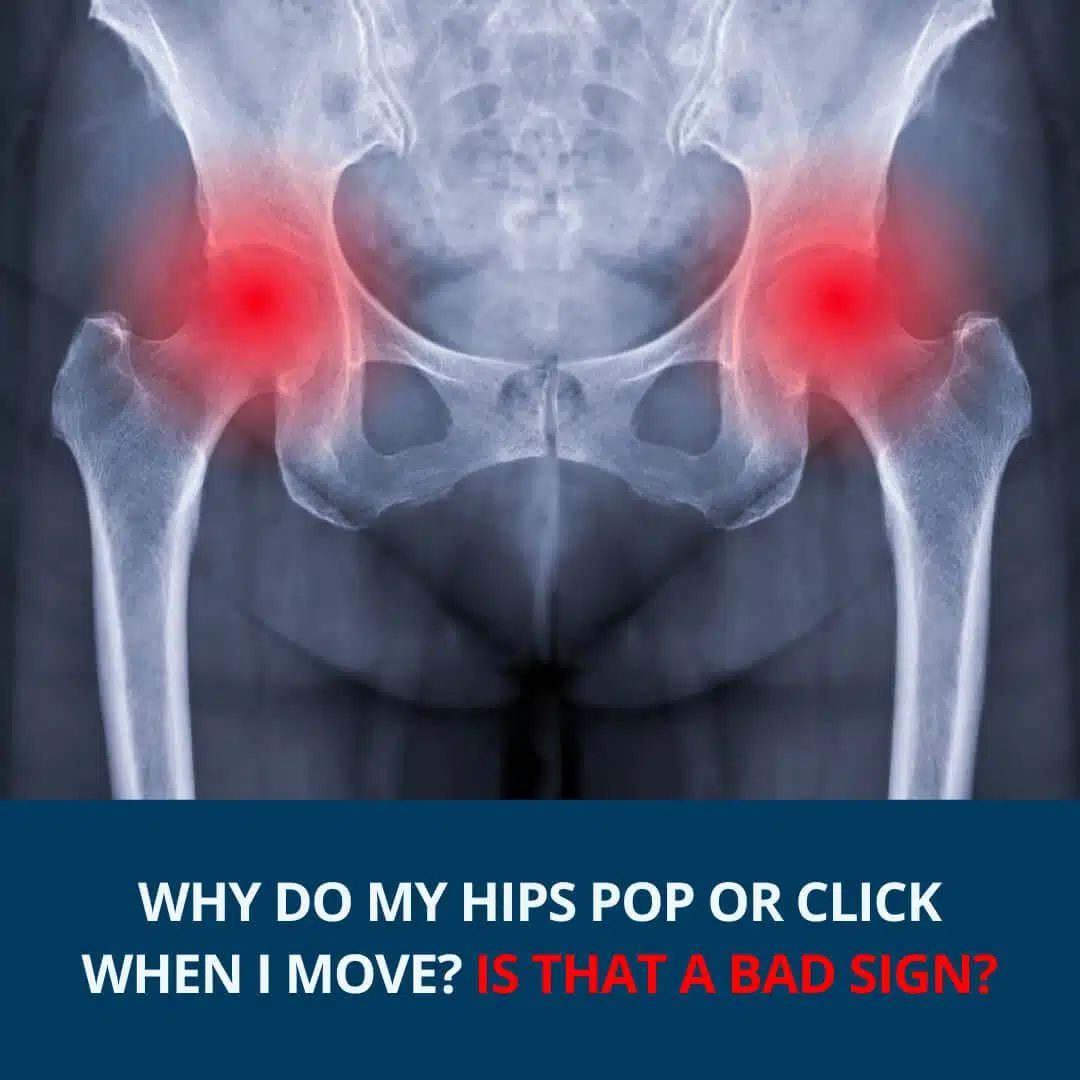
Hearing popping or clicking in the hips isn’t always a problem, but if it’s accompanied by pain or discomfort, it could indicate hip impingement, tendon issues, or misalignment.
Ask yourself: Is my hip clicking painless, or does it feel uncomfortable when it happens?
10. What’s the best way to warm up for workouts if I struggle with hip mobility?
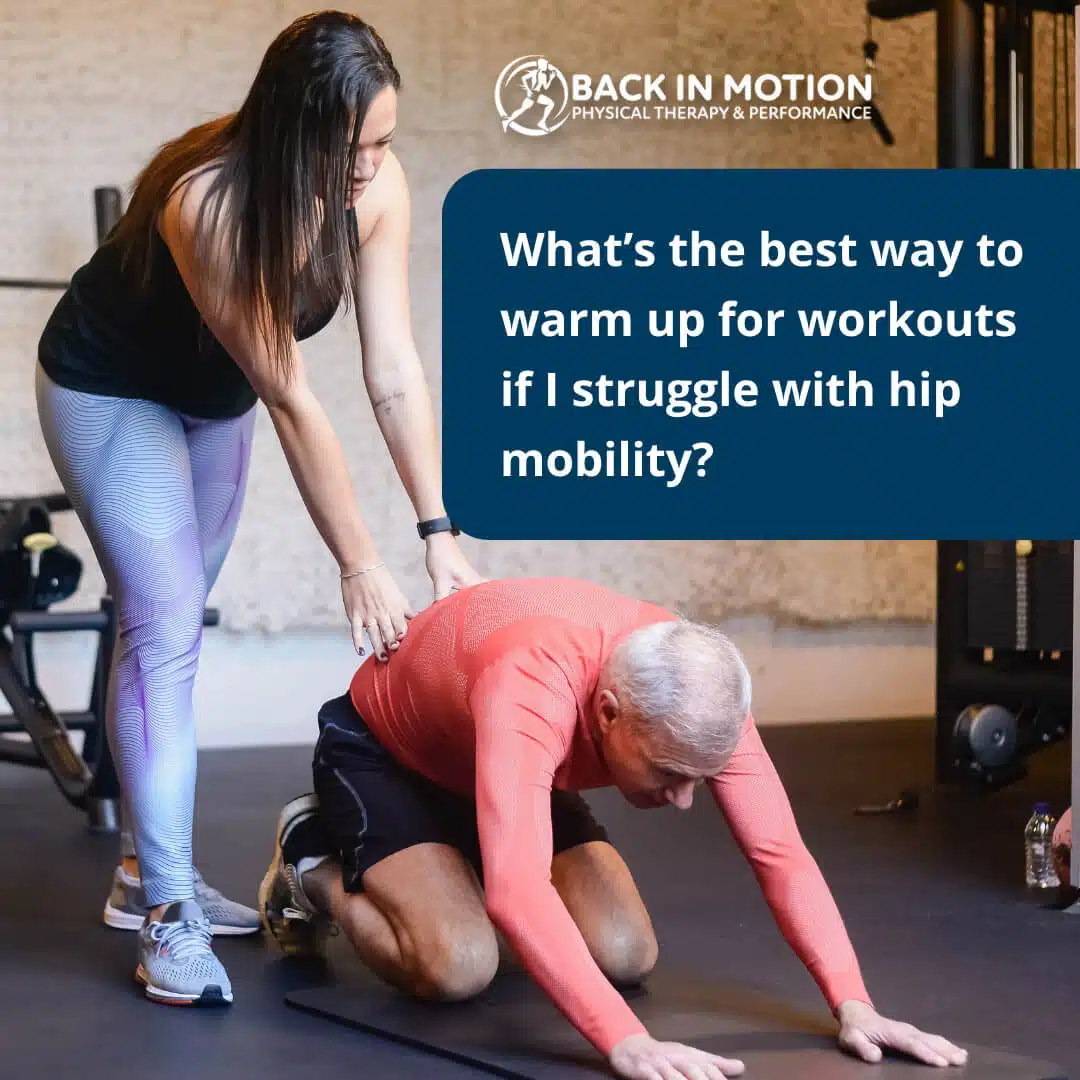
A proper warm-up prepares the hips for movement and reduces injury risk. Try hip circles, dynamic lunges, and glute activations before workouts.
Ask yourself: Do I take time to properly warm up my hips before exercising?
11. How often should I be doing mobility work to see real improvement?
To improve hip mobility, aim for 5-10 minutes of mobility work daily or 3-4 times per week. Consistency is key!
Ask yourself: Am I prioritizing my hip mobility, or only addressing it when I feel pain?
Final Thoughts: Don’t Wait Until It’s Too Late!
Hip pain, stiffness, and mobility issues are easier to fix when caught early. By asking the right questions and taking action now, you can prevent pain from getting worse and stay active for years to come.
Need expert guidance? If you’re struggling with hip pain or mobility issues, our physical therapy and fitness programs can help you move better and feel stronger.
Book a Consultation Today!

